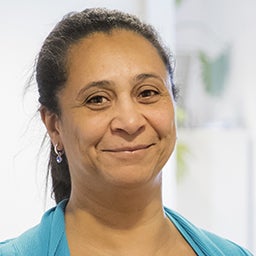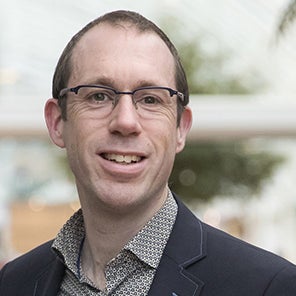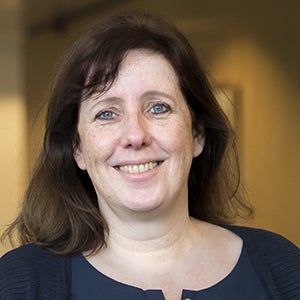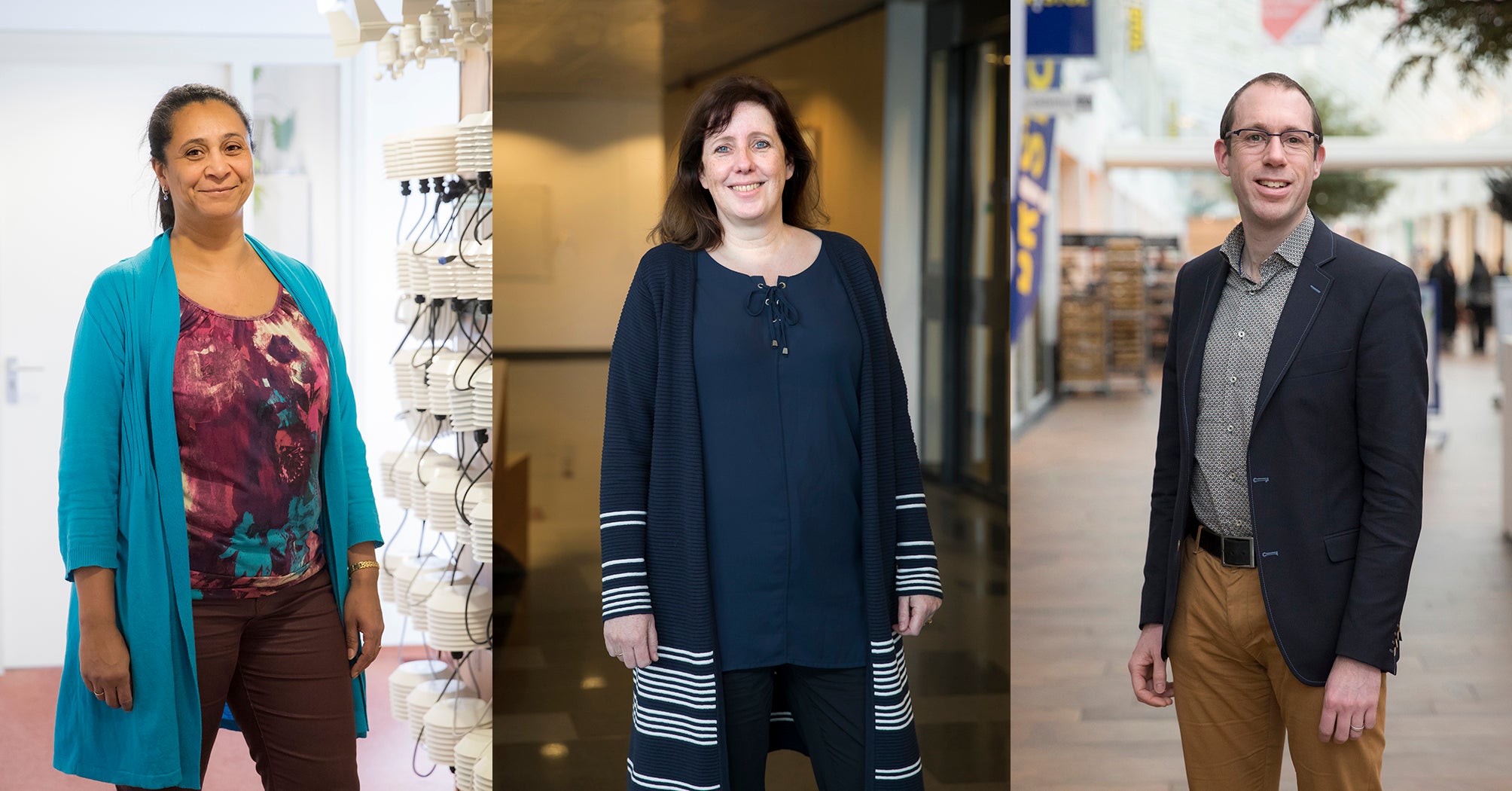There are now more than 100,000 alumni of the VU Amsterdam. Where did they end up after their studies? In this section, we feature three alumni who studied in the same programme. This time: alumni of chemistry.
‘I switched from the pleasant scents to the stinky ones'

You work with eNoses. What is that, exactly? “An eNose is a small, white instrument that measures changes in air quality. It helps to determine the cause of unpleasant odours quickly, and to monitor to make sure that the odours do not become overpowering. As an eNose expert at Comon Invent, I conduct research into new technologies that allow us to better explain the data collected by the nose.”
Where did your interest in scent begin? “After my studies, I wanted to do research, but preferably research that is of interest to society. My first job was at Unilever, where I studied perfume in laundry detergent. That is the most expensive ingredient, but almost all of it gets washed away. How can you ensure that it actually gets into the clothing? I became gripped by scents during that job, but later I switched from the pleasant scents to the stinky odours.”
Did you come across scent in your studies as well? “I remember all too well that we had to create fishy-smelling amines in the lab. I came home, and my boyfriend said: ‘You stink!’ I’d spent a half hour cycling home, but the smell stuck with me. If I had to go back and do it all over again, I would try to skip that part.”
What has stayed with you from your studies? “The social contacts. A big part of my circle of friends are from my time at the university. Once a year, we have a reunion with all 10 of us, plus their families. We celebrated our 30th anniversary last year with lots of champagne.”
‘As a scientist, I help the humanities-educated Director find a way back to a manageable focus’

How did you move from chemistry into management? “I’ve never been a hard-core exact sciences student. I was always drawn to the humanities side, and especially to communications. Soon after I finished my studies, I started working in that direction. While I was working as Internet editor at KWF Kankerbestrijding, they reorganised and I was given a new position as the editorial team leader. That’s when I discovered that I had a talent for management. In retrospect, I had already held a lot of management positions as a student. I was in the University Council, I was Chairperson of the Faculty Association and I was in the board of the SSRA student association.”
That sounds like you had a busy student life. “I was active day and night. For the association board, I regularly worked bar shifts from 5 in the afternoon to 4 in the morning. But those are my best memories: we worked hard, we gave people a good time and we had a lot of fun ourselves.”
What kind of work do you do? “I’m a policy manager at Ieder(in), an umbrella organisation for people with a disability or chronic illness. Ieder(in) was formed as a result of a merger, so we had to re-design the entire organisation. I help to build the organisational structure and to coordinate the talents to work together as smoothly as possible.”
Have your studies proved to be useful in your work? “Absolutely. As a science student, I learned how to describe the world using models to simplify it. My director is more of a humanities type, so we complement one another well. She’s good at looking at problems from different perspectives, and I help bring her back to a manageable focus.”
'The first year wasn’t easy’

What kind of work do you do? “I work at NWO, the Netherlands Organisation for Scientific Research. We finance research and organise research programmes. As Head of Chemistry, I am responsible for the chemistry-related activities and staff.”
Do you need a Chemistry degree to do your job? “Absolutely. It’s handy, because I can understand the main points of subsidy applications, for example, and I can have them evaluated by experts.”
What did you find less enjoyable about your studies? “During the first year, we had a lot of basic courses, such as mathematics and physics. That wasn’t easy. Fortunately, we had more chemistry subjects in the second year, and it became more interesting.”
What are some of your good memories? “Chemistry is a small study programme: in my first year, we only had 40 students. We had lab courses for hours on end, so we got to know each other really well. We became a close-knit group, and after each block of courses we would often go on a weekend trip together.”
Are you still in contact with anyone from your studies? “Some of them have become professors, so I speak with them through my work. And my husband and I were classmates. During our studies, we were just friends, but afterwards we met each other regularly at parties with our fellow classmates. After graduation, I spent a year in America, and when he came there for his work, we met up. That’s where our relationship started, a long way from the VU.”






